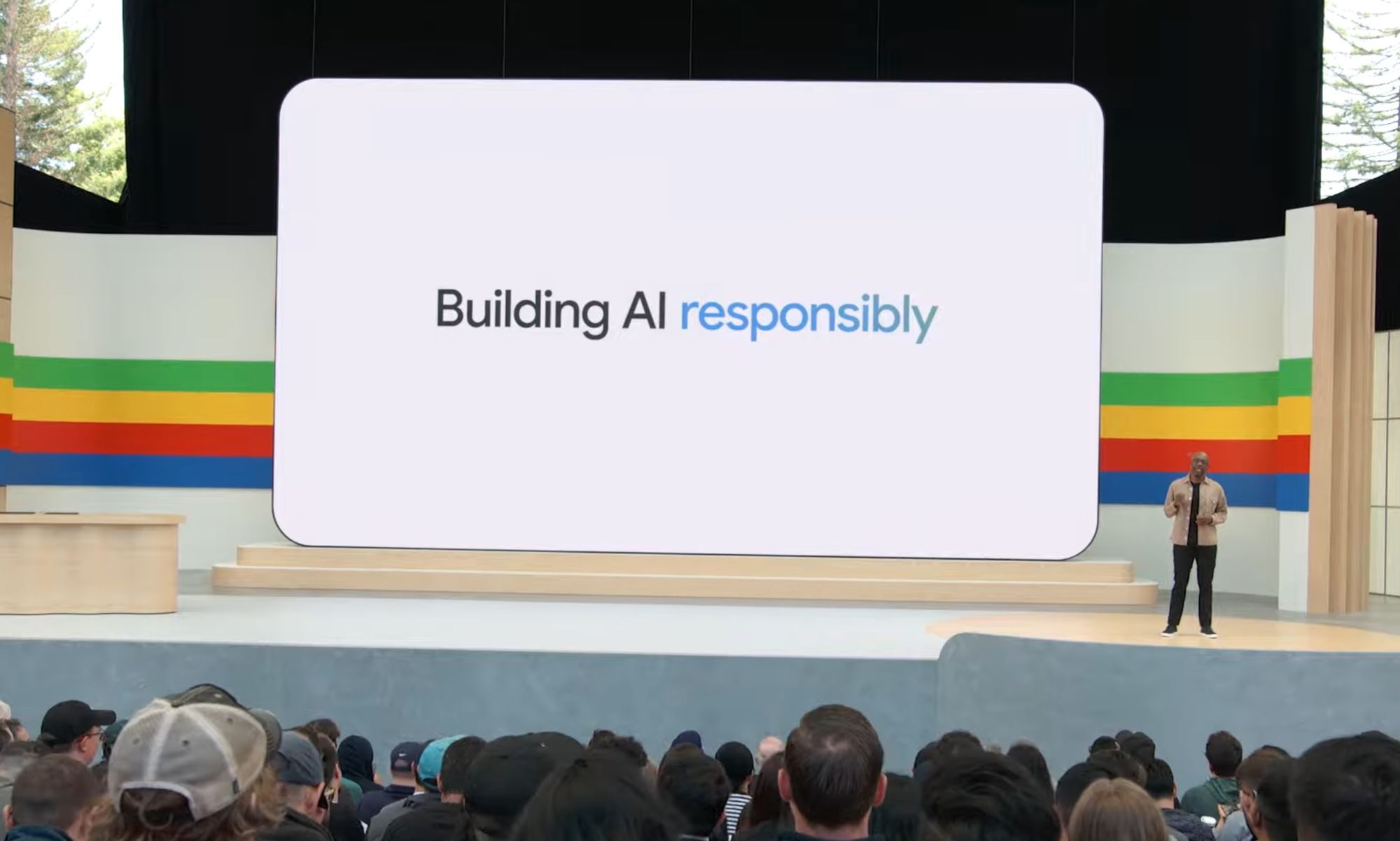A lot happened in 2024, especially with AI developments that border on the edge of “astronomical hypeware” to “holy shit” moments. Google, being the absolute hog of talent and monies, did its own thing(s) with AI. Some of it was impressive, while the rest was total dumpster fire.
Take for example Gemini. It received a ton of flak for racial bias and dumb historical inaccuracy. Google subsequently paused image generation and even admitted it was wrong. But the problem persisted. Gemini is still a stereotype shitshow, like its turban fetish for Indian men.
Well, it seems Gemini is also trying to hide Google’s sordid past with ethics. Here, have a look:
Gemini, ya sneaky boi!
Well, since Gemini is the prodigal AI baby, it would expectedly try to hide Grandpa Google’s mistakes. Interestingly, it seems Google has caught a whiff of the flub. Subsequent attempts to make Gemini stumble at the aforementioned ethics query results in a bland AI response.
But we are humans, so here’s a history of Google’s ethics shitshow – from 2023 alone:
Research conducted by the Center for Countering Digital Hate (CCDH) indicates that Google not only accepted $10 million in advertising revenue from "crisis pregnancy centers," but also provided grants to these organizations. These centers are known for their efforts to discourage women from seeking abortions.
WIRED
Research published just over a year ago suggests that Google failed to adhere to its own advertising guidelines when displaying video advertisements on third-party websites. This finding casts doubt on the openness and accountability of the tech company's digital advertising operations.
Wall Street Journal
Gannett, publisher of USA Today and over 200 daily local news publications across the U.S., including Detroit Free Press and El Paso Times, has filed a lawsuit against Google and its parent company Alphabet. The suit alleges that Google's monopoly on the digital advertising market has severely damaged the news industry, particularly local newsrooms.
Forbes

Despite hearing testimony from a grieving mother whose 13-year-old son died while attempting to recreate a "blackout challenge" video, Alphabet (Google's parent company) shareholders rejected a proposal for an independent review of YouTube. This decision comes amid a long-standing issue of fatalities resulting from individuals performing dangerous stunts and challenges for online viewers, a problem that has persisted for more than ten years.
NPR
Despite YouTube's October 2021 pledge to cease advertising on videos spreading climate misinformation, a recent study conducted in April 2023 revealed significant policy breaches. Researchers easily uncovered 100 videos that directly violated YouTube's guidelines by simply searching for terms like "climate hoax" or "climate scam." These weren't obscure, hard-to-find videos but readily accessible content. Moreover, the study identified an additional 100 videos promoting dangerous climate-related myths, further highlighting the platform's struggle to enforce its own policies effectively.
TheVerge
While Google officially bans sexual harassment, its search engine often directs users to websites hosting large amounts of non-consensual, AI-generated pornography. Although celebrities have long been the primary targets of pornographic "deepfakes," the rise of generative AI has expanded this issue. Now, social media influencers and even private individuals are increasingly finding their likenesses exploited in these artificial, sexually explicit images.
NBC News
The U.S. Department of Justice (DOJ) alleged that Google deliberately destroyed evidence it was legally required to preserve as a defendant in an antitrust case. Despite being aware of potential legal action as early as 2019, Google failed to initiate proper record-keeping procedures. Instead, the company reportedly deleted chat messages on a regular basis, sometimes as frequently as every 24 hours. Moreover, Google allegedly encouraged its employees to use chat messages rather than emails for communication, while falsely assuring the government that all relevant records were being maintained.
TechCrunch

